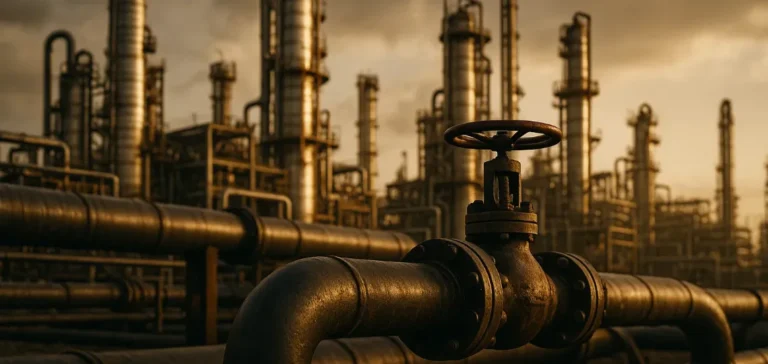According to research firm Credence Research, the global petrochemicals market, valued at USD 623.40 billion in 2024, is projected to reach USD 956.25 billion by 2032. This forecast reflects a compound annual growth rate (CAGR) of 5.49%. The upward trend is primarily fueled by growing demand for plastics, synthetic fibers, and performance chemicals across packaging, automotive, construction, and electronics sectors.
Rapid industrialization in emerging economies, coupled with rising consumer goods consumption, is accelerating investments in integrated petrochemical complexes. The increasing use of shale gas as a feedstock, especially in North America, offers a significant competitive advantage and reinforces the sector’s overall attractiveness.
Emerging Regional Growth Drivers
The Asia-Pacific region is emerging as the primary engine of growth for the global market. Favorable government policies, substantial investments in industrial infrastructure, and expanding consumer markets in countries such as China and India are driving continued capacity expansion. The Middle East, for its part, is leveraging its hydrocarbon reserves to bolster exports through large-scale megaprojects.
In North America, the integration of shale gas into production processes has reduced costs and enhanced operational efficiency. Europe, despite being a mature market, stands out for its focus on recycled and bio-based feedstocks in response to stringent environmental regulations. Latin America and Africa, while less developed, are showing increasing potential through investments in energy and infrastructure.
Regulatory Pressures and Feedstock Volatility
Environmental regulation remains a major constraint on the sector. Requirements related to carbon emissions reduction and plastic waste management compel producers to make significant investments in cleaner technologies. These obligations can affect short-term profitability, particularly for legacy operators.
Price volatility in crude oil and natural gas represents another significant uncertainty. Such fluctuations directly impact input costs, disrupt supply chains, and complicate strategic planning for producers. Meanwhile, the rise of bio-based alternatives is pushing traditional players to adapt their portfolios—a transition that requires substantial technical and financial resources.
Opportunities in Digitalization and the Circular Economy
Digital transformation is becoming a key source of operational optimization. Adoption of technologies such as digital twins, artificial intelligence, and predictive maintenance allows companies to maximize industrial efficiency while reducing operating costs. This modernization of processes also enhances supply chain resilience.
In addition, growing demand for recycled plastics and low-carbon polymers is opening new market opportunities. Investments in advanced catalytic processes and carbon capture technologies are enabling producers to meet emerging market expectations. These developments are repositioning petrochemical products within a circular production framework.
Strategic Shifts and Global Competitiveness
According to Credence Research, the competitive landscape remains fragmented, combining global groups with regional players. Major industry leaders – including BASF SE, Saudi Basic Industries Corp (SABIC), ExxonMobil, and Dow Inc. – are investing in large-scale projects and strategic partnerships to secure long-term market positioning. Mergers and acquisitions, greenfield developments, and integration of sustainable technologies are central to their growth strategies.
These trends signal a structural shift toward business models more focused on performance, supply chain resilience, and regulatory foresight. This evolving competitive environment demands constant adaptability in a market where balancing profitability and innovation is increasingly complex.






















